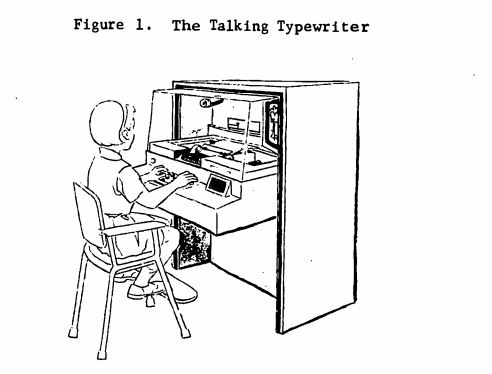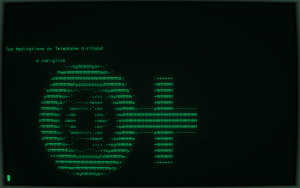EDIT: I have re-posted the conference draft of this speech; you can find it here.
A project I’m working on, “Talking Typewriters Talk Back: Early Machine Teaching Experiments and the Autistic-Machine Link”, is going to be appearing at SIGCIS 2022 in November. Here’s the abstract (at least, as it stands today), with links for those curious about learning more!
During the 1960s and 1970s, a series of experiments involving the Edison Responsive Environment, the so-called “talking typewriter,” promised to improve literacy education for heretofore underserved student populations, including disabled students. While the ERE would give way to microprocessor-based tools and eventually personal computers, these experiments would continue and provide a corpus of lab reports, scholarly writing, press and government reports and other texts that describe the relationship between autistic people and computing machines. Taking into account recent developments at the intersection between disability studies and science and technology studies that focus primarily on the between autism or autists and technology, I posit that a reading of the ERE literature informed by understandings of crip, neuroqueer technoscience provides a view into the formative era of this now widespread conceptual and discursive tether, as well as a means of historicizing our understanding of educational technology as both a research area and an industry. Further, I argue that in taking this literature into account, it is possible to supplement existing understandings of this relationship as either a vector of exploitation or a potential site of solidarity by introducing an understanding of the autist as both researched and researcher — as both an object of curiosity and an investigatory and meaning-making agent.
I’m very excited to see this work get an audience beyond myself and the people I’ve infodumped to about it, and I’m going to try to share updates about my progress as we go, tagged “TalkingTypewriter” for easy searching.


